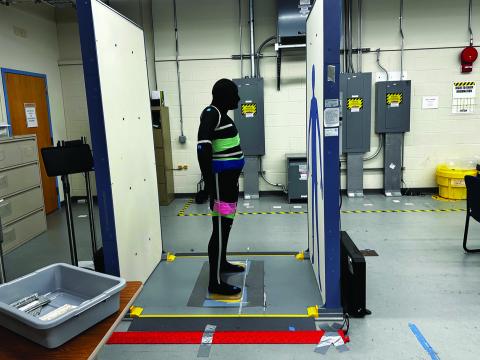DHS Expands Cyber Crime Center
New cyber crime facility provides enhanced operational and training capabilities to meet the growing cyber mission.
Alejandro Mayorkas, deputy secretary of homeland security, and Sarah R. Saldaña, director, U.S. Immigration and Customs Enforcement (ICE), on Thursday presided over the unveiling of an expanded ICE Cyber Crimes Center in Fairfax, Virginia.
The center, known as C3, will provide ICE’s Homeland Security Investigations (HSI) with enhanced operational and training capabilities to meet the growing cyber mission of the agency and increasing workload of criminal cases with a cyber nexus.
Recent examples of the types of cases C3 supports include the takedown of underground online marketplaces such as Silk Road and Black Market Reloaded; the investigation of cyber theft and piracy of the Hollywood movie The Expendables 3; and the extermination of one of the largest child pornography websites on the "darknet" as part of Operation Round Table.
“The men and women of Homeland Security Investigations perform critical work in combating criminals who use the computer as their weapon, perpetrating crimes ranging from child exploitation to the theft of intellectual property,” Mayorkas said. “The development of this expanded Cyber Crimes Center provides this great work force with the facility and tools they deserve to accomplish their mission.”
In 1997, the U.S. Customs Service created the Cyber Crimes Center in response to changing technologies and their effect on criminal trends. While C3’s mission evolved dramatically since then—and the nature of cybercrimes changed significantly—few renovations were made to update the physical space, Mayorkas indicated.
The expansion unveiled July 22 includes the build-out of a 5,000-square-foot forensic laboratory, space for coordinating large cyber operations, an evidence vault and multiple training and conference rooms.
C3 is now better equipped for combating cybercrime in today’s age, Saldaña said. ICE’s cybercrime strategy focuses on network intrusion and online theft of intellectual property and export controlled data; cyber economic crimes including the sale and conversion of stolen credit card data and personally identifiable information into criminal proceeds; and cyber-enabled crimes such as child exploitation, illicit underground marketplaces, document fraud and other crimes that have transitioned from the physical world to the virtual world.
C3’s mission involves keeping pace with emerging computer technology and Internet processes; proactively using these new technologies to combat criminal activity and address vulnerabilities created by the Internet; disseminating investigative leads and intelligence to field offices and international law-enforcement partners; and supporting field investigations.
The center delivers computer and cyber-based technical services to support HSI cases involving underground online marketplaces selling illegal drugs, weapons and other contraband; child pornography; and theft of intellectual property.




Comments